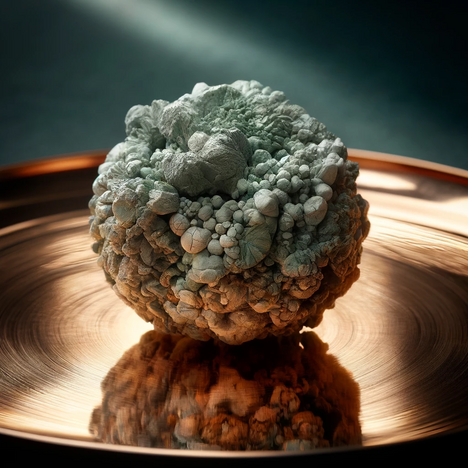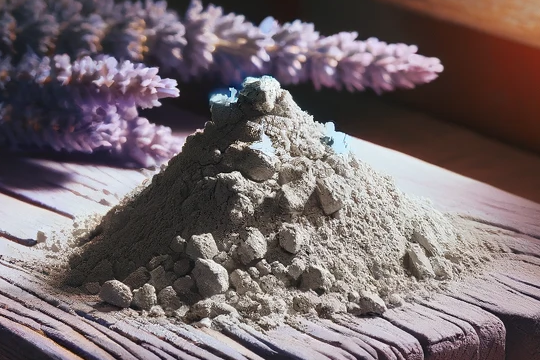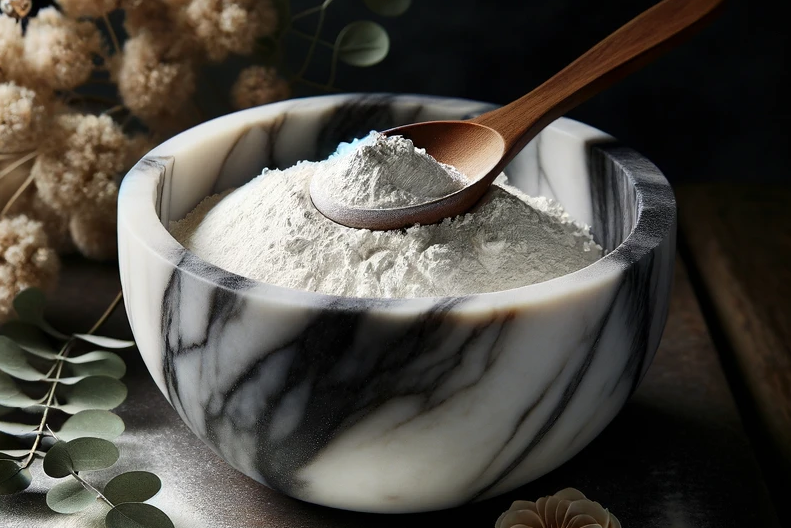Montmorillonite

What is montmorillonite?
A natural clay with unique properties
Montmorillonite belongs to the group of smectite clay minerals and is characterized by its ability to absorb water and other substances between the clay platelets. This clay is often found in natural healing clays and is known for its absorbing, adsorbing and ion-exchanging properties. These unique characteristics make montmorillonite an interesting candidate for a variety of applications, from industrial use to natural health care.
Montmorillonite for dogs: a healthy supplement?
Potential benefits
- Digestive support: Montmorillonite is often valued for its ability to support and regulate digestion. It can help bind and eliminate toxins, bacteria and other harmful substances in the gut, resulting in a healthier gut flora.
- Mineral source: This clay mineral is rich in important minerals such as calcium, magnesium, potassium and silicon. These nutrients are essential for the health and well-being of dogs.
- Promotes skin and coat health: Topical application of montmorillonite can contribute to skin and coat health by reducing inflammation and helping to heal skin irritations.
Possible disadvantages and concerns
- Overdosing: Excessive intake of montmorillonite can lead to constipation and other digestive problems in dogs, as the clay can bind water in the intestines in excess.
- Differences in quality: The quality of montmorillonite can vary greatly, depending on the source and processing. Some products may contain impurities that could be harmful to dogs.
- Interaction with other medications: Montmorillonite may interfere with the absorption of medications if administered at the same time. It is important to consult a veterinarian before giving montmorillonite to a dog that is taking medication.
Recommendations for the use of montmorillonite in dogs
Before incorporating montmorillonite into your dog's grooming or health routine, there are some important points to consider:
- Quality and purity: choose montmorillonite products of high quality and purity, ideally those specifically designed for use in animals.
- Moderation and observation: Start with small doses and observe your dog's reaction in order to recognize possible negative effects at an early stage.
A promising natural product that needs to be handled carefully
Montmorillonite offers an interesting option for naturally supporting the health and well-being of dogs. Its potential benefits in terms of digestion, mineral nutrition and skin health are promising. However, it is important to consider potential risks such as overdosing, differences in quality and interactions with other medications. With proper use and under expert guidance, montmorillonite can be a valuable addition to your dog's health care regimen.
If you notice any signs of hypersensitivity or poisoning in your dog, you should see your vet immediately. We are not a substitute for a vet, but we try to be as accurate as possible. Every dog reacts differently and we recommend you get a second opinion or consult your vet if in doubt.
Stay healthy and take good care of your four-legged friend!😊
Similar to Montmorillonite
Bentonite is a fine powder consisting of various clay minerals. The most important are montmorillonite, kaolinite and illite. These minerals have a platelet-like structure that can swell in water...
Kaolin, also known as china clay or white clay, is a naturally occurring white mineral consisting mainly of the mineral kaolinite. It is used in various industries, from ceramic production to...
Zeolite is a naturally occurring, microporous mineral with a unique crystalline structure consisting of aluminum, silicon and oxygen. Its special ability to exchange ions and adsorb molecules makes...
Activated charcoal is made from wood, coconut shells, bones or other organic materials. These are heated and treated with oxygen or water vapor to create small pores. This creates a very large...



